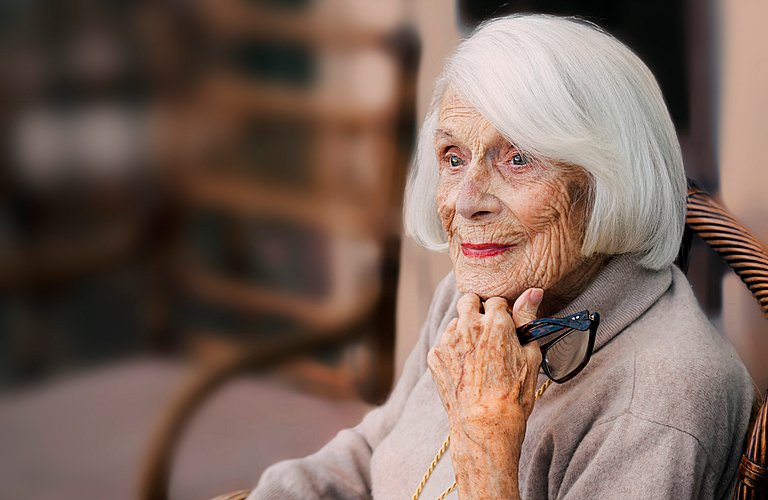192 Sloane Street, London SW1X 9QX

KYN's Guide to Coping With Grief
Grief touches all our lives at some point. Whether you've recently lost someone dear, are supporting a loved one through bereavement, or are reflecting on past losses, understanding grief can help you navigate this difficult journey with greater compassion for yourself and others. This guide explores what grief truly means, how it affects us both emotionally and physically, and provides gentle strategies for coping with loss whilst honouring the memory of those we've loved.
What Exactly Is Grief?
Grief is our natural response to loss, particularly the loss of someone we love. It's the price we pay for having loved deeply, and whilst it can feel overwhelming, it's actually a testament to the meaningful connections we've formed throughout our lives. Grief isn't limited to death alone – we may grieve the loss of our health, independence, a cherished home, or even the life we once knew. Each person's grief journey is unique, shaped by their relationship with what they've lost, their personal history, and their support network. There's no 'right' way to grieve, no timeline that fits everyone, and certainly no expiry date on when you should feel 'better'. Understanding this can bring immense relief during a time when you might feel pressure to 'move on' or 'get back to normal'.
How Does Grief Affect Our Daily Lives?
Grief touches every aspect of our being, manifesting in ways that might surprise us. Emotionally, you might experience a kaleidoscope of feelings – sadness, anger, guilt, relief, or even moments of unexpected joy when remembering happy times. These emotions can arrive in waves, sometimes catching you off guard during seemingly ordinary moments. Physically, grief can be exhausting. You might notice:
- Changes in appetite – Some people lose interest in food entirely, whilst others find comfort in familiar meals. Both responses are normal, though it's important to nourish your body even when eating feels like a chore.
- Sleep disturbances – Grief often disrupts our sleep patterns. You might find yourself unable to sleep, waking frequently, or conversely, feeling constantly tired and sleeping more than usual.
- Physical symptoms – Headaches, chest tightness, digestive issues, and general aches are common. Your body is processing intense emotions, and this takes a physical toll.
- Difficulty concentrating – Many people describe feeling foggy or unable to focus on tasks that once came easily. This 'grief brain' is your mind's way of protecting you whilst processing loss.
What Are the Different Ways People Experience Grief?
Whilst everyone's grief journey is unique, many people recognise certain patterns in their experience. You might find yourself in denial initially, unable to accept the reality of your loss. Anger might surface – at the situation, at others, even at the person who's gone. Bargaining thoughts ("If only I had...") are common, as is deep sadness when the reality of loss truly settles in. Eventually, many people reach a place of acceptance – not that the loss is okay, but that it's real and must be integrated into life moving forward. These experiences don't follow a neat progression; you might feel acceptance one day and anger the next. This back-and-forth is perfectly normal and doesn't mean you're grieving 'wrongly'.
How Can I Navigate Grief Day by Day?
Creating gentle routines can provide structure during chaotic times. Consider starting each day with a simple ritual – perhaps a cup of tea in your favourite chair or a brief walk in the garden. These small anchors can help ground you when emotions feel overwhelming. Here are some compassionate ways to support yourself through each day:
- Honour your feelings – Allow yourself to feel whatever emerges without judgement. If you need to cry, cry. If you find yourself laughing at a memory, that's beautiful too.
- Stay connected – Grief can be isolating, but maintaining connections with others is vital. Even a brief phone call or text exchange can remind you that you're not alone.
- Create memory rituals – Light a candle, look through photographs, or visit meaningful places. These acts of remembrance can provide comfort and help you feel connected to your loved one.
- Move gently – Physical activity, even gentle movement like stretching or short walks, can help process difficult emotions and improve sleep.
When Should I Consider Professional Support?
There's no shame in seeking professional help whilst grieving. Consider reaching out if you're struggling with daily activities for an extended period, experiencing thoughts of self-harm, or feeling stuck in your grief journey. Bereavement counsellors and support groups offer safe spaces to explore your feelings with others who understand. Your GP can also provide support, particularly if grief is significantly impacting your physical health or if you're concerned about depression.
Experience Compassionate Support with KYN
At KYN, we understand that many of our residents and their families are navigating grief. Our compassionate teams are experienced in providing gentle support during difficult times, creating spaces where feelings can be expressed and memories honoured. Through our person-centred approach and specialised palliative care, we help residents maintain meaningful connections whilst processing loss in their own time and way. If you or a loved one would benefit from the gentle, understanding care that KYN provides, we're here to help. Our luxury care homes across London and the South East offer nurturing environments where every individual's emotional and physical wellbeing is honoured with the utmost respect and compassion. To learn more about how we can support you during life's most difficult moments, please contact us today. We're always here to listen and understand.